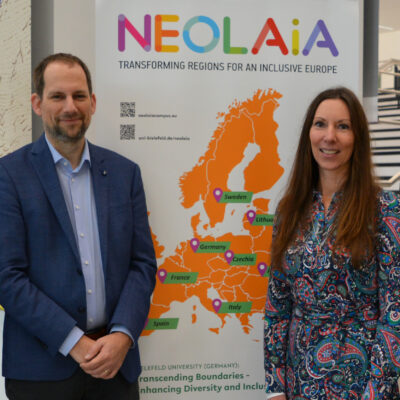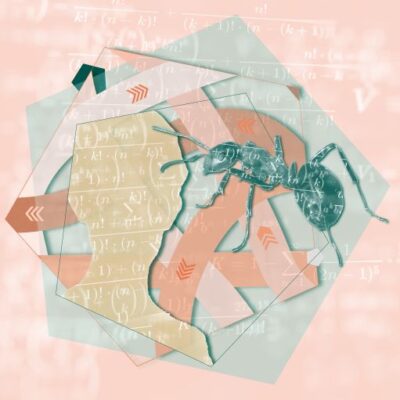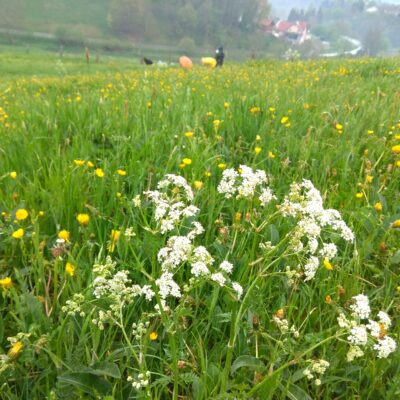The life stories investigated by Heisenberg Professor Dr. Daniela Schiek are at once depressing – and impressive. The sociologist works with individuals who grow up in juvenile residential facilities or institutions. In her research, Schiek seeks to understand how these young people manage to take their lives into their own hands and live on their own terms.
You can’t escape your family. You are shaped by your childhood home. These are widespread assumptions held in sociology, explains Daniela Schiek, who, as a researcher, engages deeply with the different phases and generations of life. She has also studied how patterns within the family are perpetuated – how values and attitudes are passed down from one generation to the next. In her last project, for instance, the sociologist studied how poverty in the family is inherited, and what perspectives those who have long been dependent on social assistance pass onto their offspring. ‘Of course, I could only ask those who were actually sitting at the table.’ But what about those who broke away from their families to escape the influences of their home environment? How do children who do not grow up with families find their way in life? How do autonomy and independence develop? And do youth welfare and state welfare institutions foster childhood development independent of parental influence? ‘I couldn’t stop thinking about these questions.’
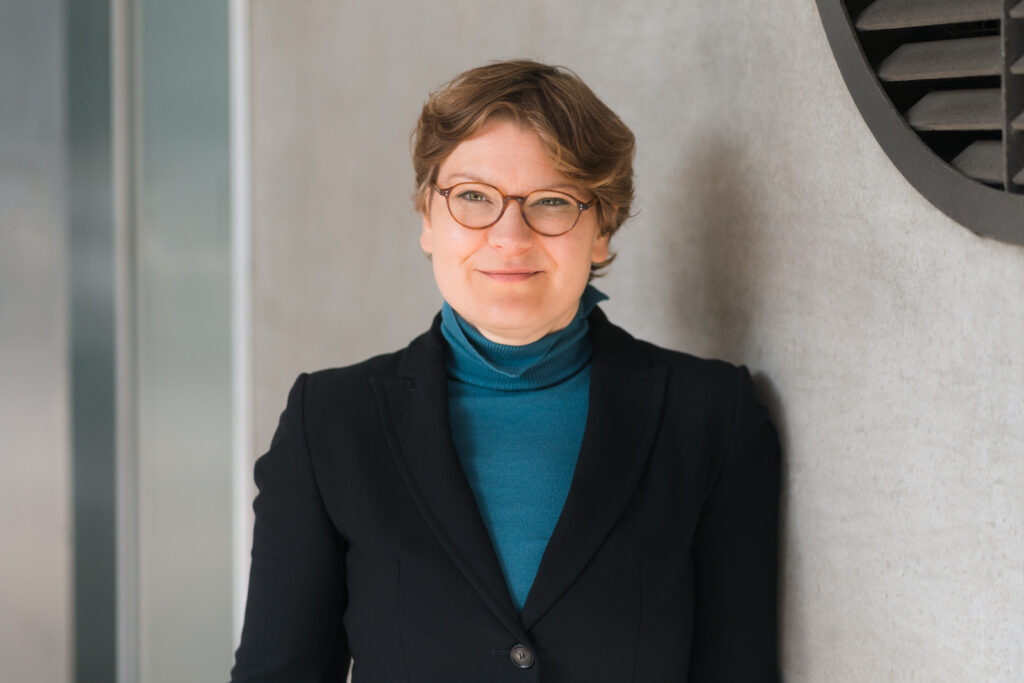
© Marc Benkmann
A passion for research
The Heisenberg Programme of the German Research Foundation, with its four funding modalities ranging from scholarships to professorships, is providing the 45-year-old the opportunity to shed light on this field of research where much remains to be learned. When she submitted her application for the professorship, she was working at the University of Hamburg as a research fellow with a high teaching load. Nevertheless, she managed to put her name in the game, driven by ‘a great desire to tackle an innovative research project that combined everything I can do with everything I want to know.’ That these efforts resulted in a professorship, the ultimate accolade, and an appointment to the Faculty of Sociology at Bielefeld University, was all the better for her. ‘It is an exceptional faculty that is deeply committed to research and is very receptive to my project,’ says Schiek. A native of Lower Saxony, Schiek is also not new to Bielefeld University. In 2016, she held a temporary deputy professorship in Bielefeld on empirical social research methods with a focus on qualitative methods, and in 2017, she completed her post-doctoral habilitation at Bielefeld University.
This past summer, Daniela Schiek began the Heisenberg professorship and immediately got to work. The first step was to put out feelers for potential research participants. She fanned out her request to contacts in child and youth welfare services – and received an unexpected volume of responses. ‘When I submitted the call for participants, I thought it would be very difficult to break into this field. But as it turns out, they were practically breaking down my door to speak with me,’ she says. Throughout the course of many preliminary discussions, Daniela Schiek sensed that she had hit a nerve – that it is very important for those affected to be able to tell their story, to become more visible, and to support the research project.
In search of untold riches
Schiek greatly appreciates the research opportunities provided by the Heisenberg professorship. ‘It is precisely these kinds of underexplored fields that need this kind of support. I have enough time to follow leads without the pressure of committing to a theory that in the end might not pan out.’ Schiek is traveling throughout Germany to conduct interviews and takes ‘all material that I can get my hands on.’ By the end of November, Daniela Schiek will have completed her first phase of data collection and will then conduct an evaluation to determine the key issues and areas of focus. ‘Based on the first interviews, I can already say that many dimensions have emerged. There are some real untold riches, so to speak, in these interviews.’
Many of those who have had to navigate life without the help of family often demonstrate enormous strength and resilience. “I can do it on my own” – this lived experienced can lead to a feeling of empowerment, as Daniela Schiek reports. At the same time, Schiek maintains that she is focusing on the “success stories” – on those who have not been broken by the circumstances of their lives – which is by no means everyone. ‘I am not dealing with the hard cases, with the cliché of the criminalised ward of the state,’ as Schiek explains, explaining that she is looking at previously unexamined cases of success. This group is not part of the statistics. ‘But there is a growing trend that ever-more children are growing up outside of their parental home in state institutions.’
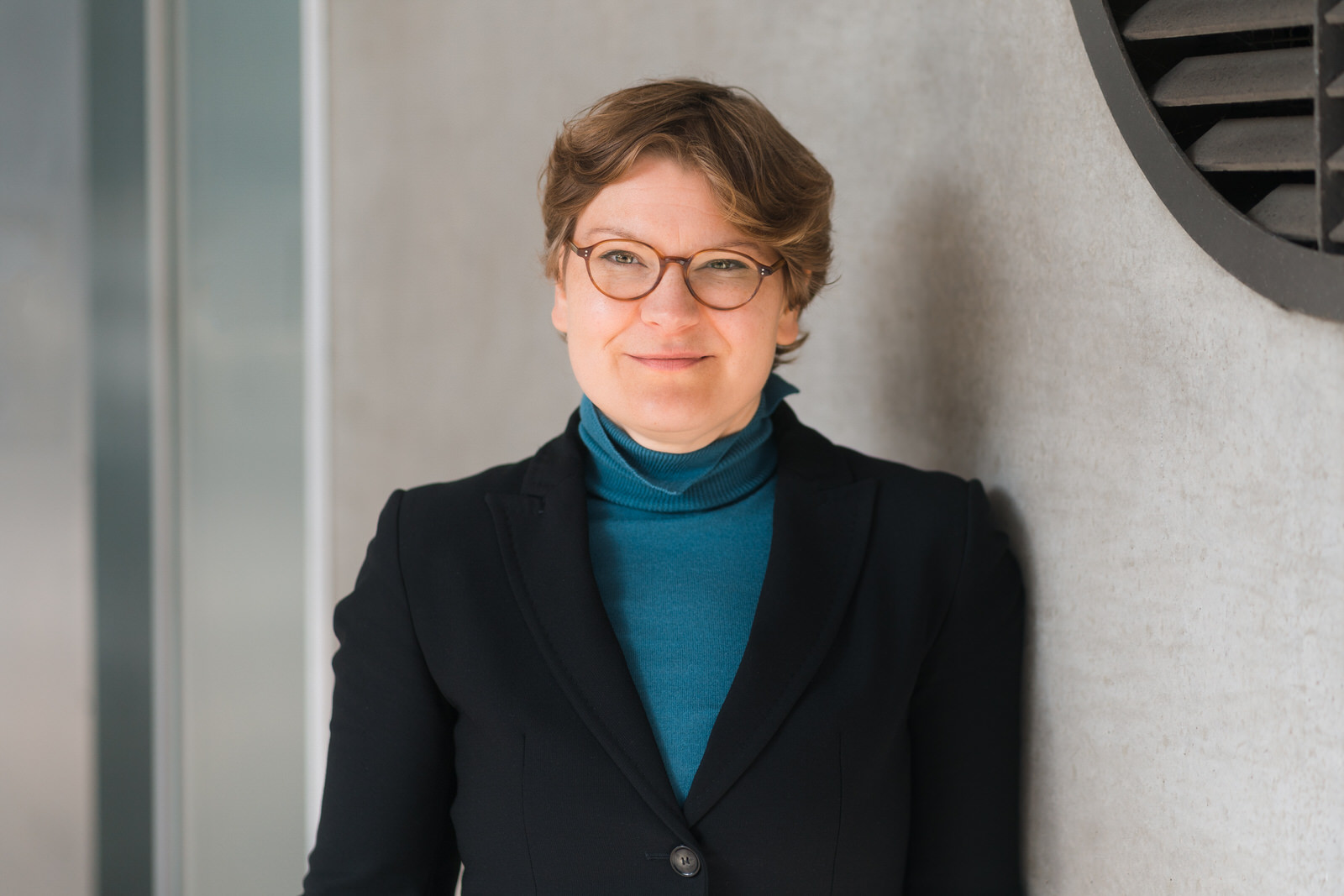
© Marc Benkmann
Taking the discourse beyond the family
With her work, Schiek aims to address a gap in the research and expand the discourse. ‘In the 1990s, sociology was all about individualisation, but the topic later fell out of favour, as the promise of individualisation was supposedly not realised.’ Instead, scholarly attention was turned to the family and the significant role played by family in shaping a childhood. ‘But what comes directly from the individual? This is an issue I want to revisit and find out whether there are any institutions that foster autonomy.’
Looking in the shadows and forgotten corners
Daniela Schiek interviews adults of all ages, from students to retirees. Among her interviewees are individuals who grew up in classic orphanages as well as those who lived in supervised residential group homes or other juvenile institutions. Each interview lasts three to four hours on average, and Schiek has already conducted such 10 interviews. Neglect, dereliction, abuse, the murder of grandparents in concentration camps – ‘these are not easy cases and these are not nice stories,’ says Schiek, ‘but they are impressive people and I am excited about the results. It is our job as social scientists to look in the shadows and forgotten corners.’

